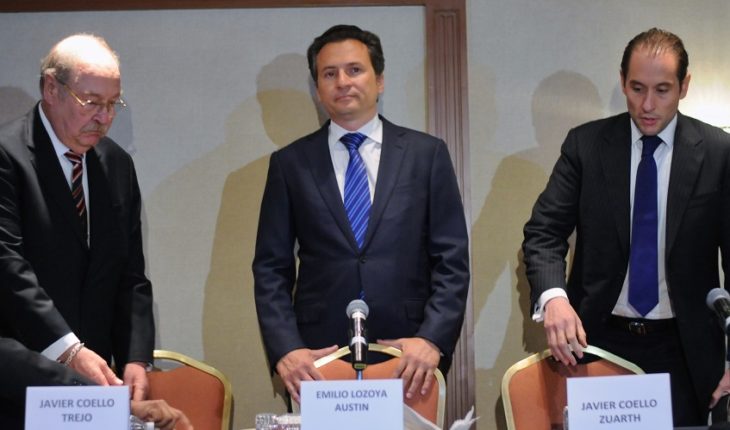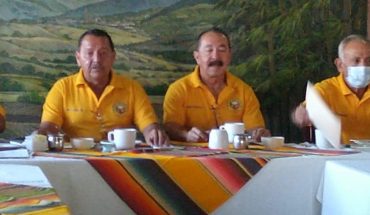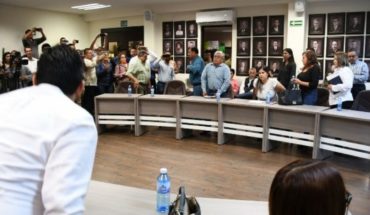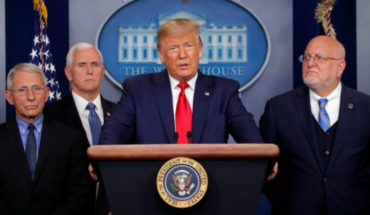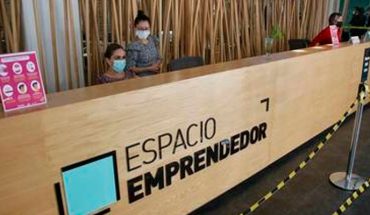The lawyers of the former director of Petróleos Mexicanos (Pemex) Emilio Lozoya Austin, who is currently on the prefugue of justice, seek that the Attorney General’s Office of the Republic (FGR) authorize them access to the latest proceedings in the investigation folder opened by the so-called Odebrecht case, by which one of the two arrest warrants was already turned against him.
These include statements by former officials, building links networks, as well as tracking banking operations in Europe and specifically in Switzerland, where one of the accounts involved in the alleged money laundering activities that are attributed to Lozoya.
To achieve this, the defense promoted to a federal judge of the Southern Preventive Inmate a resource for this to be the FGR who, in turn, orders the FGR to deliver copies of that file. The court has on Thursday summoned the parties, including Lozoya himself, to a public hearing to settle this matter.
What the lawyers of the former director of Pemex argue is that the Attorney General’s Office has denied them since January of this year to be able to review and take copies of the research folder number FED/SEIDF/CGI-CDMX/0000117/2017, a situation that would attack against of his right to a good defense.
The folder was opened in January 2017 by the Specialized Office of Federal Crime Investigation (SEIDF), derived from initial evidence suggesting that Brazilian construction company Odebrecht had paid bribes to senior officials of Pemex, in exchange for a number of contracts
According to Lozoya’s defense, the then PGR had allowed them to review the case periodically, a situation that changed this year when they no longer wanted to give them access. It was right in that context that the Prosecutor’s Office decided to prosecute the case before a judge to seek an arrest warrant against Lozoya for the offences of bribery, criminal association and money laundering.
To try to defend their argument, defense lawyers will argue that since February 15th there has been a case law issued by a collegiate court that contends that when “acts of annoyance” are generated (such as an apprehension order) against a person, this person has the right to know without restrictions the investigation.
This is in view of the principle of equality of the parties, as well as an adequate defence provided for in the National Code of Criminal Procedures.
It should be noted that under the rules of the new criminal system, according to lawyers consulted, the FGR is obliged to deliver at the initial hearing or prior to it a copy of the research folder to Emilio Lozoya, so that he can know the case and present arguments attempts to curb their possible attachment to criminal proceedings.
However this has not happened given that Lozoya has not appeared for the hearing, and in fact is legally fugitive from justice, with two arrest warrants against him. One of them is for this case and the other for alleged irregularities in the purchase of the Agro Nitrogenados fertilizer plant.
It is in this context that the defense of the former director of Pemex decided to bring before a control judge his demand for access to the last volumes of the research folder. In response, the judge summoned the parties to discuss the matter at a public hearing and to make a determination.
As it is a matter that directly involves him, Emilio Lozoya should be present at the hearing. If you do not go, it will be the power of the supervisory judge to define whether or not to relieve the petition.
The “hidden” evidence
The investigations carried out in recent months by the FGR around the Odebrecht case, which Lozoya’s lawyers attempt to access, has focused on the trail of various banking operations abroad, through which they would have been carried out alleged money laundering activities.
It was the deputy prosecutor of the then PGR who detailed part of these investigations in a trade addressed to the prosecutor Gertz Manero, which the unit made public on February 14.
It was reported that a new package of bank details had been received from Switzerland, from which the National Planning, Analysis and Information Centre would conduct a network of links identifying transfers, deposits and various people involved in these facts. In addition, expert opinions on accounting would be added.
In parallel, prosecutors sought other ministerial statements that complement that of potential witnesses in the case.
In recent weeks, journalistic investigations of Against Corruption and Impunity and Fifth Lab Element revealed that it is precisely in Switzerland that the bank account of a company called Tochos Holding Limited was opened, from which resources would have supposedly been triangulated to Lozoya’s relatives, for the acquisition of a property.
Even the reportof Quinto Elemento Lab, in collaboration with a German media, warned that Switzerland could be one of the countries in which the former director of Pemex is currently located.
Odebrecht file: delays and opacity
The research folder initiated by the PGR in relation to the Odebrecht case has been at the heart of the controversy over the past two years, mainly due to the lack of transparency and concrete results. This is unlike in other countries such as Peru, where four former presidents are already formally accused of receiving bribes from the Brazilian company.
Questions in Mexico came in hand after in October 2017 the then prosecutor Raúl Cervantes announced, after resigning the charge, that the investigation related to Odebrecht was practically finished, and ready to be sent before a judge. But the previous six-year period passed and ended without it happening.
In January of this year, Attorney General Alejandro Gertz Manero stated that the record they encountered was actually incomplete and messy, although he promised that in the short term there would be results. On 14 February, the Public Prosecutor’s Office released a summary of the steps carried out in the last two years, as well as the announcement of several evidence that was still to be collected.
Finally, on 5 July, the FGR reported that it had obtained from a judge an apprehension order against Lozoya, as well as his wife, mother and sister, as a result of investigations related to the Odebrecht case.
The issue that did take the Odebrecht case to court since the end of last year was transparency.
This was later that the National Institute of Transparency and Access to Information (INAI) ruled in October last year that the research folder should be transparent as being in the public interest. This in response to several requests for information requesting public versions of it, as well as the names and statements of those involved.
And just last May, INAI added a new approach in which it considered that, as a case of corruption, Odebrecht’s investigation would have to be declassified.
But none of the above has happened since both the PGR and today FGR, as well as Emilio Lozoya himself, have obtained definitive suspensions in claims of protection promoted against the orders of the INAI. These proceedings remain pending, without the substance of the case being defined.
What we do in Animal Político requires professional journalists, teamwork, dialogue with readers and something very important: independence. You can help us keep going. Be part of the team.
Subscribe to Animal Politician, receive benefits and support free journalism.#YoSoyAnimal
translated from Spanish: Lozoya’s defense asks judge to know the evidence against him
August 8, 2019 |
